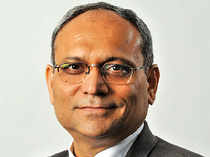
Edited excerpts:
What is the broader construct? Why are markets not excited about the fact that crude is down and liquidity is back again?
India is part of the emerging markets’ broad construct and Indian markets have pretty much tracked the MSCI emerging market index. India per se has certainly improved, especially its macro parameters with lower crude prices having a positive impact on the fiscal side and rupee being stable. But for the time being, the world is watching the US-China trade issues as well as the slowdown in the US economy.
In the shorter term, say the next one year, do you believe that equity market returns will be much subdued and if so, what is your broad expectation on the index level?
To your mind what is the biggest risk for the market and can the election derail sentiment in a meaningful manner?
On the second point first, elections and their impact on the markets could have a very meaningful impact in the very near term. If the market likes the results, the market is up and if the market does not like the results, it could go down substantially. But all that will be forgotten in a month’s time or something at the outside. Ultimately, people will look back at earnings.
So, elections will lead to lot of volatility. But will it cause permanent damage to the markets or to the earnings potential of companies? I doubt that very much. At the end of the day, you are buying companies. So, to answer your second question on the elections, we do not see that as something which can cause permanent damage to the markets one way or the other.
In terms of risks to the broad markets as a whole, India is a major energy importer. Energy price do have an impact on what happens to the economy. Secondly, one big risk that we had as a system was the high NPAs within the banking system. Fortunately or unfortunately, since the demand for bank credit have been somewhat subdued. It was essentially retail which was driving the demand for credit.
As we see capacity utilisation, RBI referred to it yesterday and we are seeing expansion of brownfield capacities and green fields being talked about. When the demand for credit picks up, and the banking system is not ready to lend, that is a risk to the economy. That seems to be getting behind us.
We saw in Q2 numbers that NPA slippages were substantially down for corporate oriented banks. We do not see major surprises there. They will likely get recapitalised and the large PSUs and the private sector banks anyway have adequate capital to lend. One risk could be yes, the banking system just freezes and does not want to lend and there is a demand for credit on the other side, But, that is a risk we do not see manifesting substantially. Basically like interest rates moving one way or the other, these two risks -- energy prices and NPAs are favourable for us at this time. So, I do not see major risks. The construct for the macro is actually quite favourable for the markets.
Everybody was lapping up autos. We saw a major PE expansion in auto ancillary stocks also. Two bad numbers and auto stocks have come down as if nobody will buy cars and people will be worried about traffic and they will start walking on the streets of Mumbai and Delhi?
Yes. You have to segregate what the companies do in terms of earnings, the growth that they deliver and what the market does with those earnings. The market is never perfect. It is either too optimistic or too pessimistic. We had those good growth numbers from auto companies and the markets were just pricing in aggressive growth for a very long time. We do not see tractor growth for example, growing at say 18% per annum. It is not possible. But something like low double digit is certainly possible. The market prices it aggressively and it shows in the valuations. It is not really that the companies themselves are doing something different from what they said they would do. It is the market adjusting expectation results in the sharp volatility in prices really.
Download The Economic Times News App to get Daily Market Updates & Live Business News.
Subscribe to The Economic Times Prime and read the Economic Times ePaper Online.and Sensex Today.
Top Trending Stocks: SBI Share Price, Axis Bank Share Price, HDFC Bank Share Price, Infosys Share Price, Wipro Share Price, NTPC Share Price
Read More News on
Download The Economic Times News App to get Daily Market Updates & Live Business News.
Subscribe to The Economic Times Prime and read the Economic Times ePaper Online.and Sensex Today.
Top Trending Stocks: SBI Share Price, Axis Bank Share Price, HDFC Bank Share Price, Infosys Share Price, Wipro Share Price, NTPC Share Price















 Get Unlimited Access to The Economic Times
Get Unlimited Access to The Economic Times
